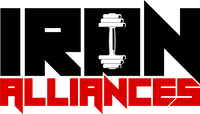
Training hard but still stuck? The issue might not be your program—it could be your recovery. Here’s why recovery isn’t just important—it’s everything.
Talk to a coach who can diagnose your recovery gaps and fix them →
Muscle and strength gains happen after the gym. Training creates the stimulus. But recovery is when your body actually adapts—rebuilding muscle, repairing tissue, and increasing capacity.
If you keep hammering your body without recovering, you’re just spinning your wheels—or worse, regressing.
If you check two or more of these boxes, it’s time to rethink how you treat recovery in your training cycle.
Recovery isn’t just foam rolling and protein shakes. These are the three non-negotiables:
Hire a coach who adjusts your training around life stress and fatigue →
Good recovery doesn’t mean skipping hard work—it means absorbing the work you’ve already done.
Dan was training 5x/week and stuck on his squat for 2 months. His coach pulled one session, bumped his carbs by 75g daily, and moved his sleep from 6.5 hours to 8. Two weeks later, he hit a PR.
Read this deep dive on recovery and adaptation from NCBI: Optimizing Recovery in Strength Training
Also check our post on How to Break a Strength Plateau to see how fatigue management plays into PRs.
Want more powerbuilding strategies and real-world lifting insights? Browse the full Iron Alliances strength training hub.
Work with a coach who factors recovery into every phase of your training →